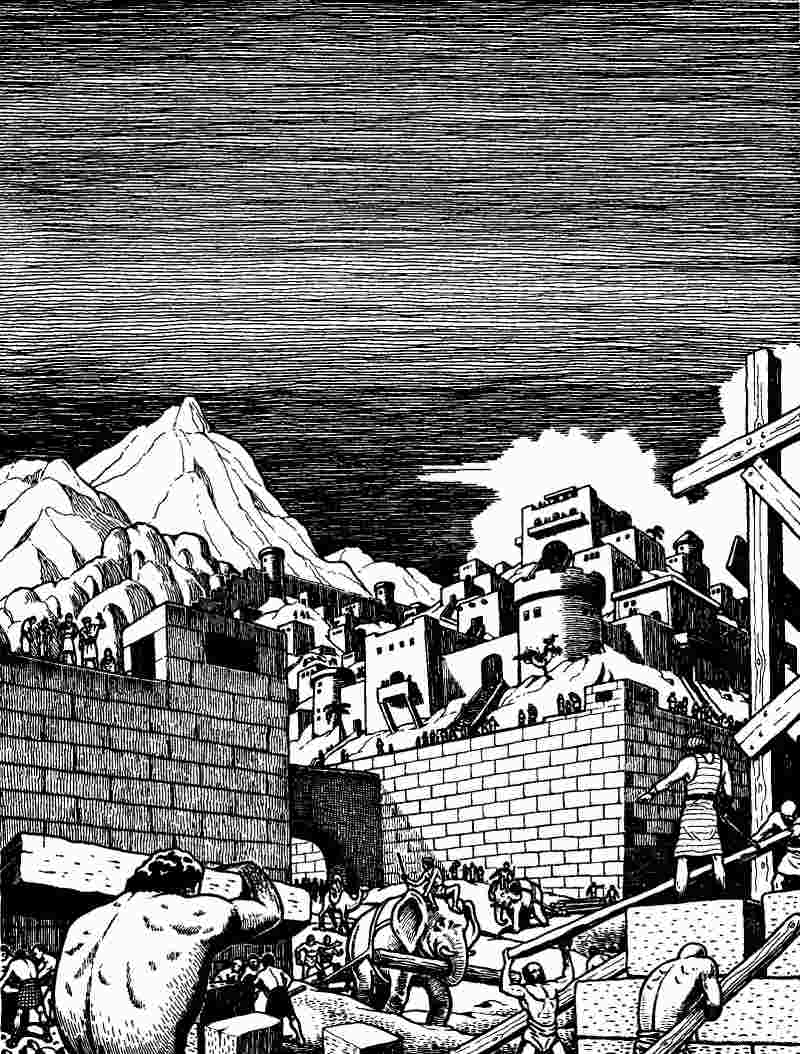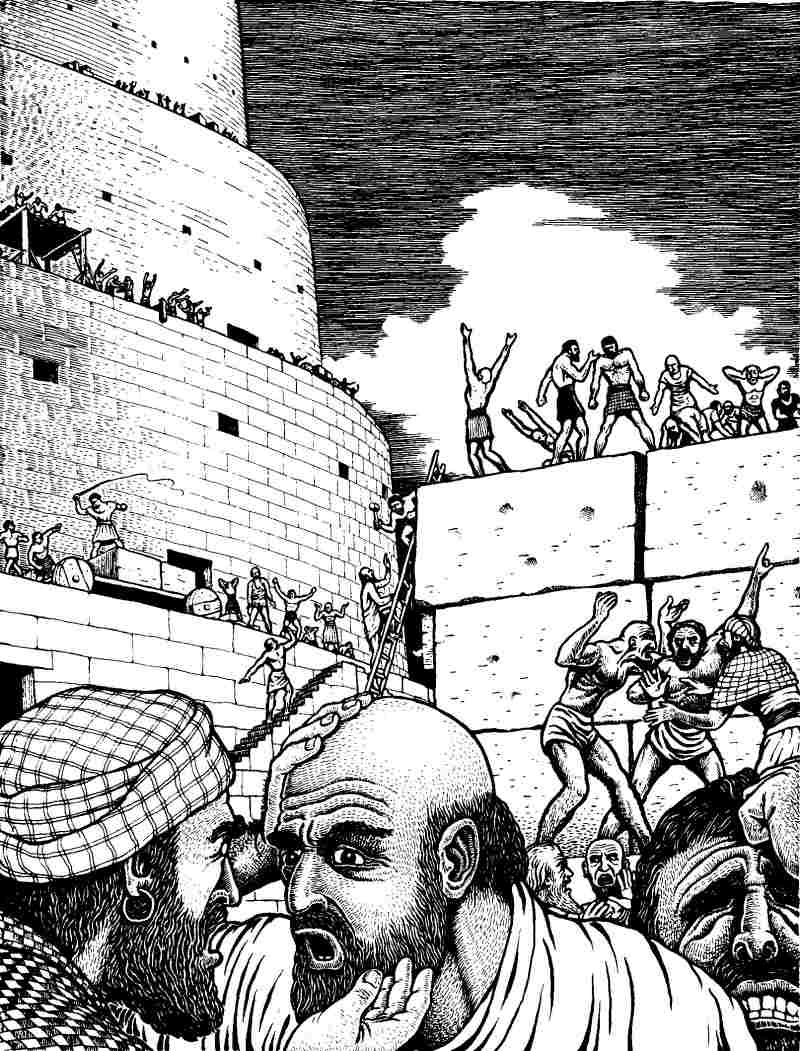FROM then on, all the people who came into the world descended from Noah's three sons and their wives. (Gen. 9:19) After some years had gone by, there developed many inhabitants in the plains area south of where the ark had landed. Some of them moved farther down into the valleys of the Tigris and Euphrates, the two main rivers of what later became known as the land of Assyria.
As the years passed and people increased in numbers, many of them moved southeast over the lower plains to what is now known as the Persian Gulf. There the soil was rich, and wonderful crops sprang out of it. The ground was best in the region where the Tigris and Euphrates flowed closest together in a land called Shinar. (Gen. 11:2) More and more families chose that area in which to live.
There were very few rocks or trees there. Probably no great city would have been built there if it hadn't been discovered that much of the soil was just right for making excellent bricks. These were made by pressing moist clay into block shapes and baking them in the sun or around fires. Furthermore, there were places where a thick, pitchy liquid oozed from the ground. This liquid, called bitumen, was the very thing needed to hold the bricks together. (Gen. 11:3)
Human Beings Huddle Together
Men began putting up homes, barns, warehouses and all kinds of buildings. Before long towns were sprawling over the plain of Shinar. People were massing together again just as they had done before the Flood.
|
After the Flood people went contrary to God's wish by crowding into newly built cities.
 |
This did not please God. He knew that when human beings huddled together in crowded buildings, they failed to get the best out of the good things He had created for men to find in the fields, the forests, the mountains, the streams and even in the seas and deserts. Besides, men were more likely to break God's rules of happy living when they existed in masses. God had told Noah and his family that people should spread out over the Earth.
Noah lived for three hundred and fifty years after the Flood. (Gen. 9:28) During that time he publicly proclaimed God's wishes whenever he had the opportunity. Through him, many people understood something about God's plans and laws. Unhappily, most people were living further and further from the ways they should have been living, and had little interest in bettering themselves by obedience to their Creator.
Nimrod Becomes a Hero
At this time in human history there was a man who came down from one of Noah's sons, Ham. The man's name was Nimrod. Most of Earth's inhabitants today wouldn't have any idea who this man was, although in one way or another he has had a powerful effect on the life of most everyone who has lived in the past four thousand years.
Nimrod was a very large, strong, fierce man with dark skin. Because of his power and skill as a successful hunter of wild beasts that attacked people, he became a hero and a leader among his tribesmen. (Gen. 10:8-9) Like most others of his time, he knew of his Creator's laws, but he hated those laws. Just as many people today have been led to believe, Nimrod believed that if he lived by God's rules he wouldn't enjoy life. He lived by his own laws, and tried to prove to others that they would be happier if they would live the same way.
Nimrod became chief over the people who grouped together in the main sprawling town in the land of Shinar. Probably there were many families who didn't like the way he ordered them about, but whenever wild animals attacked, Nimrod and his warriors fought to protect the townspeople. Nimrod later built a wall around the growing town. Deeds like these helped make him a strong leader, and caused more families to move in and settle under his rule.
Before many more years had passed, the town had grown into a city. It was the first large one to be built on the Earth after the Flood. It was such a wonder that people came from afar to gaze on the vast mass of buildings and high walls. That country later came to be known as Babylonia, and the name of the city was Babel or Babylon. (Gen. 10:10)
Nimrod Begins Idol Worship
|
God confused the language of the nations at the Tower of Babel.
 |